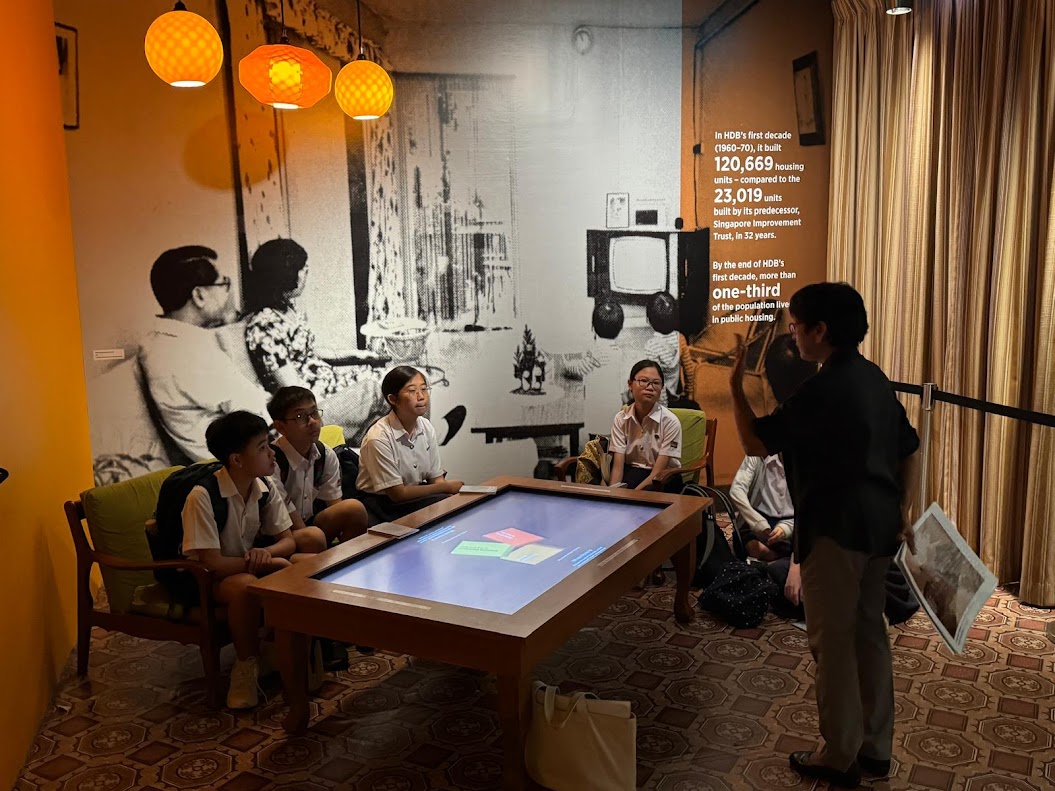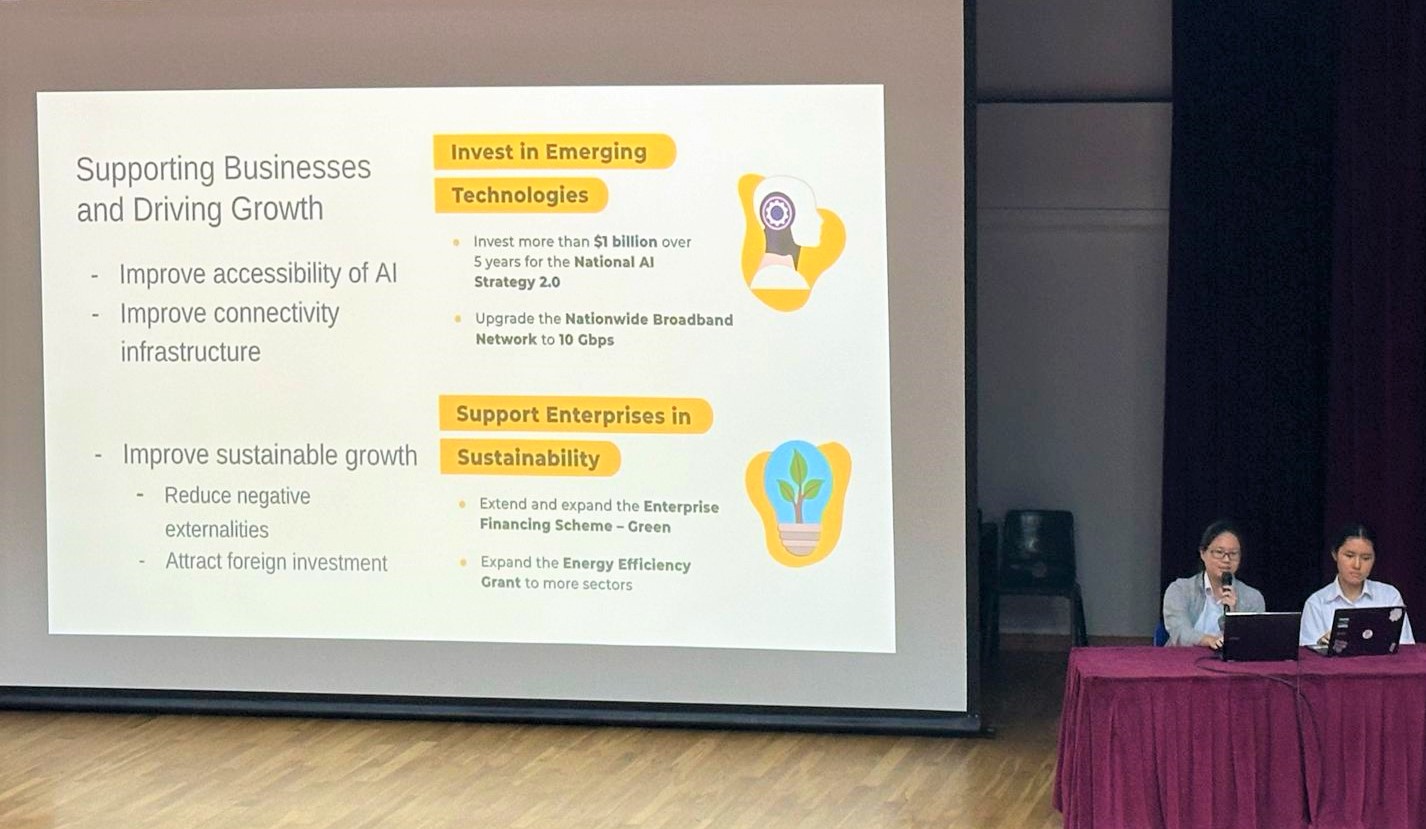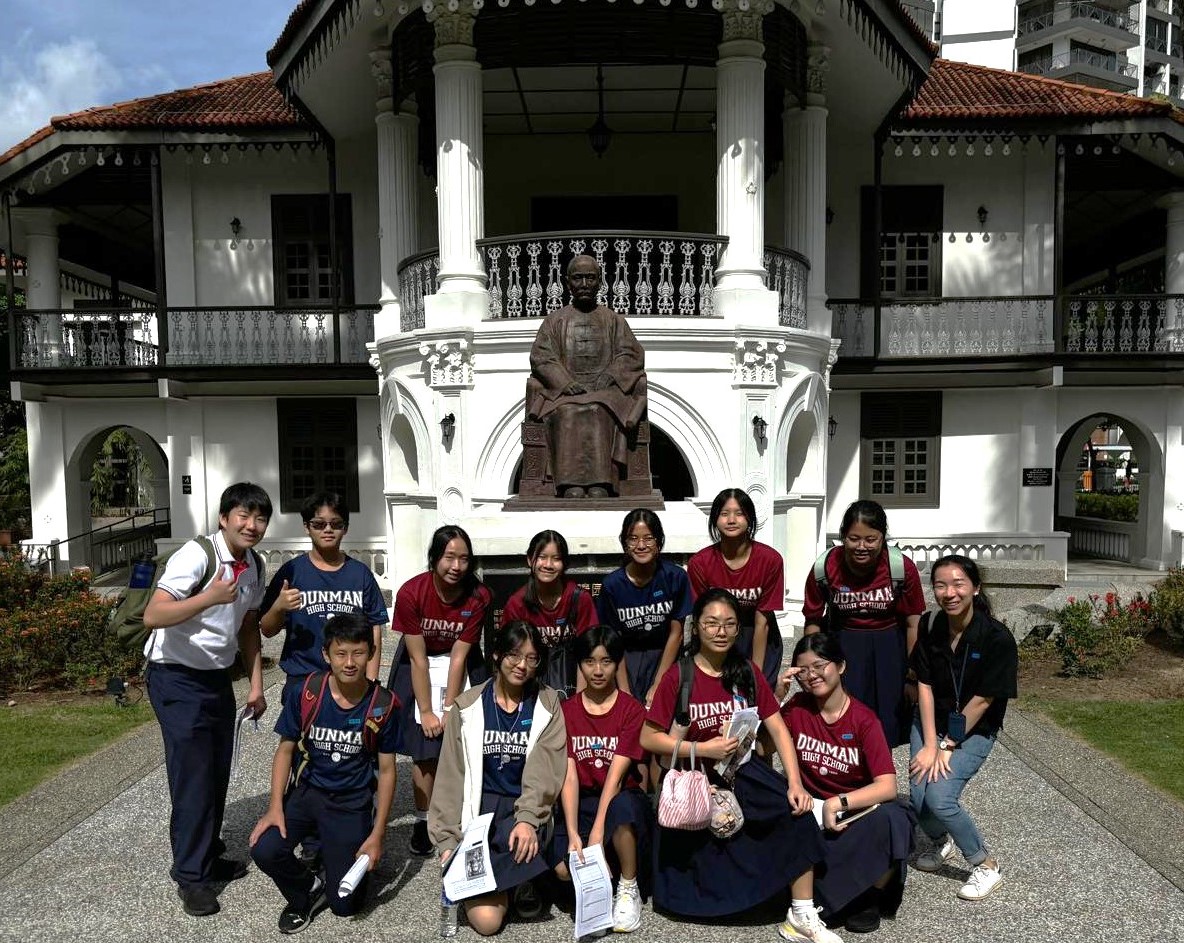Humanities Programme
At the heart of the DHS Humanities Department is a commitment to nurturing thoughtful, informed, and empathetic individuals ready to make a positive impact.

Curriculum
Rooted in the study of human experiences, cultures, histories, and environments, the DHS Humanities curriculum adopts inquiry-based and constructivist approaches to promote curiosity, independent thinking, and engagement with real-world issues. Spanning Active Citizenship Education, Economics, Geography, and History, the Humanities curriculum is forward-looking and responsive to the evolving needs of society.
Content
|
Subject / Programme |
|
|---|---|
|
Active Citizenry Education (ACE) |
The Active Citizenry Education (ACE) syllabus at Junior High (Year 1-4) adopts a values-driven, inquiry-based approach where students are encouraged to think critically about societal issues, reflect on their roles in a diverse world, and take ownership of their learning. They develop critical thinking, appreciate diverse perspectives, and become reflective learners. Core skills such as the ability to evaluate sources, detect bias, and discern truth promote informed decision-making, responsible citizenship, and independent thought. Our dynamic, real-world curriculum connects students to local and global challenges, fostering civic responsibility and social awareness. |
|
Geography, History |
At Dunman High School, the study of Geography and History cultivates confident, self-directed learners, active contributors, and concerned citizens. Students explore complex relationships between people, places, and time and develop critical thinking, research, and communication skills to engage meaningfully with real-world challenges. Geography equips students with the tools to understand environmental interdependence and issues such as climate change and sustainable development, while History deepens their understanding of global and regional transformations through key themes like Rise and Fall of Colonial Empires, the Development of the Cold War and 20th Century Conflicts. Both curricula emphasise analytical thinking, digital literacy, and global awareness, empowering students to make informed decisions and contribute to a sustainable and inclusive future. |
|
Economics |
At the core of the learning of Economics in Dunman High School at Senior High (Y5-6) is the Decision-Making Approach which guides disciplinary thinking. This approach emphasises Sound Reasoning and Decision-Making, supporting the development of Critical and Inventive Thinking. It enables students to evaluate how economic agents make decisions based on the fundamental disciplinary concepts of scarcity, choice and opportunity costs, and to apply this understanding to analyse domestic, regional and global economic issues. Through analysing wide ranging economic issues such as climate change and technological disruptions, the syllabus also aims to build the values of responsibility, resilience and empathy. |
Delivery
At DHS, Humanities programmes are delivered through a dynamic, inquiry-based, and student-centred approach. Lessons are intentionally designed to be interactive, authentic, and reflective, enabling students to take ownership of their learning and actively construct knowledge.

Across subjects, lesson delivery incorporates a variety of strategies such as role-play, debates, group discussions and projects. These approaches are complemented by experiential learning opportunities like fieldwork, learning journeys, and investigative tasks that connect academic content to real-world contexts. Digital platforms enhance engagement, allowing students to analyse data, explore diverse perspectives, and construct knowledge by forming evidence-based conclusions.

Across all subjects, lesson delivery emphasises reflection, independence, and collaboration—equipping students to be thoughtful inquirers, engaged citizens, and adaptable, future-ready learners. Humanities lessons at DHS are crafted not just to impart knowledge, but to nurture reflective inquirers, engaged citizens, and future-ready learners prepared to navigate and contribute meaningfully to a complex, interconnected world.

Assessment
At the heart of our assessment philosophy is the belief that assessment should inspire growth, reflection, and a lifelong love for learning. Through the intentional design of assessments, we aim for students to develop core skills such as critical thinking and communication, and sustain their curiosity, build independence, and deepen their appreciation of the world.

To support this, we employ a variety of authentic and reflective assessment strategies such as fieldwork, reflecting on diverse perspectives and communicating these insights through a multitude of media such as forum letters, videos, podcasts, infographics, reports and essays. Our assessments support continuous learning and development through class practices, quizzes, peer and self-assessments, and sample marking. Students receive timely feedback that informs their learning and encourages ownership of their academic growth. These practices encourage metacognition, helping students monitor their own thinking and continuously improve their learning.

